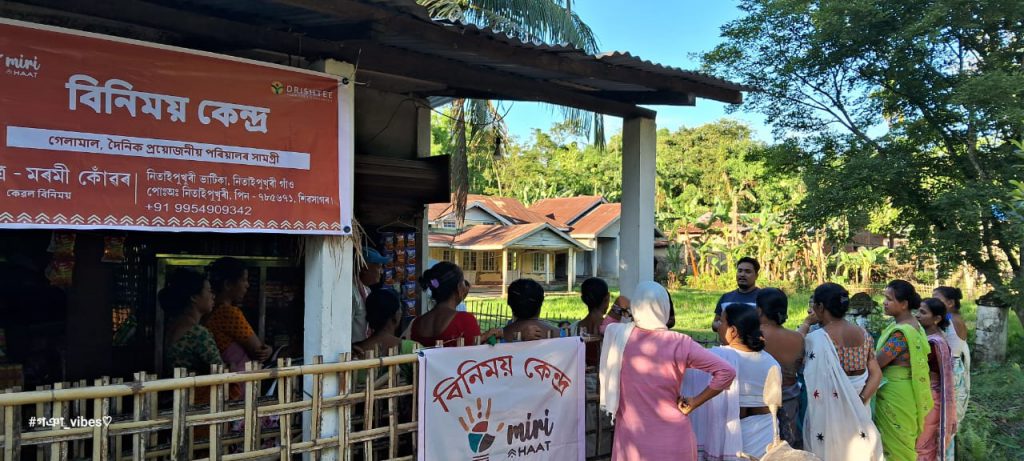Drishtee has always envisioned self-reliant societies, community well-being, empowered women, and holistic development to attain sustainable development goals. Working with grassroots sections, and addressing their financial insecurities, Drishtee has evolved several community-friendly approaches to date. One of these concepts is barter, which involves exchanging goods and services without using money. This unique concept was introduced by our ancient ancestors and has been promoted and carried forward by the Drishtee Foundation for several years.

Individuals who have excess products or services can exchange them to fulfill their needs, obtaining an equal amount from their local neighbors and shopkeepers. Drishtee launched ‘Mitra,’ a community-friendly concept for facilitating barter in rural areas. Mitras are generally shopkeepers who facilitate these barter exchanges based on the wants and needs of their customers and local communities. Initially, manual approaches were used, but over time, Drishtee evolved with a barter application called MIRI (Made in Rural India) Haat to streamline the process and keep records. This application captures basic data of local producers and the products/services they have in excess.
Another interesting aspect of barter is that it enables goods to be exchanged without involving monetary transactions. Instead of money, Drishtee provides LP (livelihood points) to each producer, which have an equal value as the product’s price. Producers can use these LP to exchange for goods. For example, if someone possesses 10 eggs worth 100 LP, they can exchange them for 2 coconuts worth 50 LP each or any other item of similar value from a local female shopkeeper or their neighbors.
Barter has brought several advantages to the communities, such as preserving local resources within the village, assisting women in saving money, reducing debts in shops, and utilizing excess resources. Drishtee is focused on making the process easier, better, and more producer-friendly through new ideologies, approaches, and innovative solutions.
Gradually, rural people are accepting barter and promoting it among their loved ones. Mitras find it interesting, and communities are incorporating the process into their daily transactions. A woman from a rural area in West Bengal shared, ‘In the past, I had to ask my husband for money to buy small things like biscuits or candy for my child. Now, being part of Drishtee’s barter system, things have become easier for housewives like us. We can now buy things with our household items, fruits from our trees, or vegetables from our farms.’
This is what we dream of and strive for – making people happy, self-sufficient, and securing resources.”
Written By – Risha Bhattacharyya
